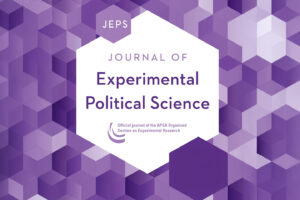
The views expressed are those of the author and do not represent the views of the SNF Agora Institute or Johns Hopkins University.
Authors: Hahrie Han, Geoff Henderson
Abstract
Seattle, Washington instituted a new “democracy voucher” program in 2017 providing each registered voter with four $25 campaign finance vouchers to contribute to municipal candidates. Prior research shows that without efforts to mobilize voters, electoral reforms like the voucher program are often insufficient to increase participation among underrepresented groups. We examine how mobilization affects the voucher program’s redistributive goals – does it increase participation among infrequent voters, or does it engage regular participants in politics? In the 2017 election cycle, we partnered with a coalition of advocacy organizations on a field experiment to estimate the effects of providing voters with information about democracy vouchers through door-to-door canvassing, texting, digital advertisements, and e-mails. While mobilization increased voucher use and voter turnout, responsiveness was greatest among frequent voters. As our findings suggest that transactional mobilizing is insufficient to engage infrequent participants, we posit that deeper organizing is necessary to fulfill the program’s redistributive goals.
Continue reading in Journal of Experimental Political Science (JEPS).
